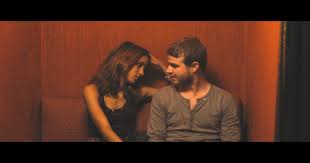The Devil All the Time
by Hope Madden and George Wolf
“Lord knows where a person who ain’t saved might end up.”
Indeed. The constant fight to overcome the worst in ourselves lies at the heart of The Devil All the Time, director Antonio Campos’s darkly riveting realization of Donald Ray Pollock’s best-selling novel.
Bookended by the close of World War II and the escalation in Vietnam, the film connects the fates of various characters living in the small rural towns of Southern Ohio and West Virginia.
Arvin (Tom Holland), the son of a disturbed WWII vet (Bill Skarsgård), fights to protect his sister (Eliza Scanlen) while he ponders his future. Husband and wife serial killers (Jason Clarke and Riley Keough) look for hitchhikers to degrade, photograph and murder. A new small town preacher (Robert Pattinson) displays a special interest in the young girls of his congregation.
It’s a star studded affair—Mia Wasikowska, Haley Bennett and Sebastian Stan joining as well—but every actor blends into the woodsy atmosphere with a sense of unease that permeates the air. No stars here, all character actors in service of the film’s unsettling calling.
Pollock’s prose created a dizzyingly bleak landscape where Flannery O’Connor and Cormac McCarthy might meet to quietly ponder man’s inhumanity to man. Campos unlocks that world courtesy of Pollock himself, who narrates the film’s depravity with a backwoods folksiness that makes it all the more chilling.
As rays of light are constantly snuffed out by darkness, Campos (who also co-wrote the screenplay) uses Pollock’s voice and contrasting soundtrack song choices to create a perverse air of comfort.
Redemption is a slippery aim in and around Knockemstiff, Ohio, and grace is even harder to come by. With a heavier hand, this film would have been a savage beating or a backwoods horror of the most grotesque kind. Campos and his formidable ensemble deliver Pollock’s tale with enough understatement and integrity to cut deeply, unnerving your soul and leaving a well-earned scar.



